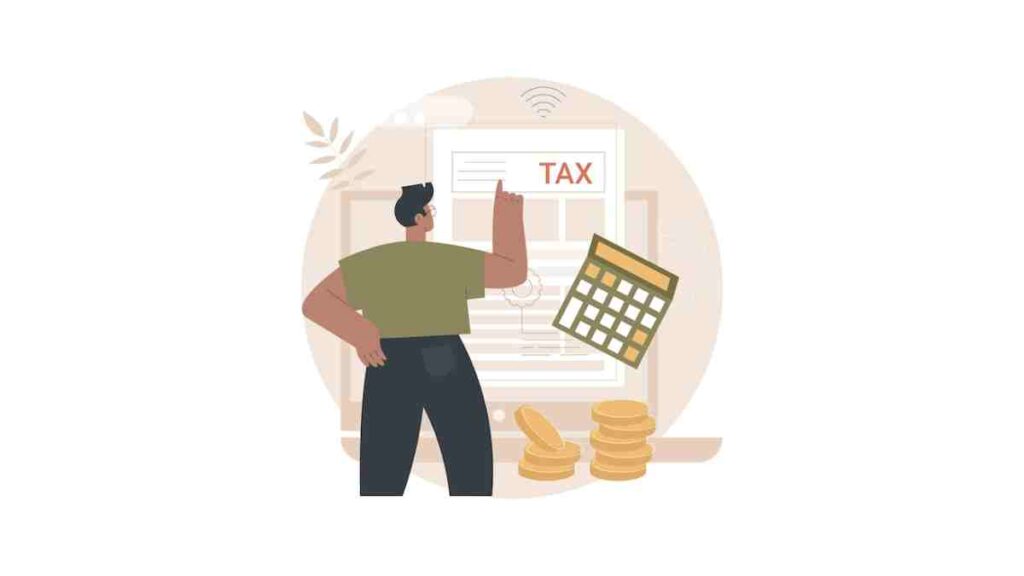The Grant Agreements are critical documents in the world of funding and financial assistance. It outlines the terms and conditions governing the provision of a grant from one party to another. Whether you’re a nonprofit organization, a research institution, or a business, understanding the components of a grant agreement is crucial. Let’s break it down.
Understanding Grant Agreements: Chennai Law Forum





Key Elements of Grant Agreements
A Grant Agreement typically consists of several essential elements that shape the grantor-grantee relationship. These elements include:
1. Grant Purpose
- A clear description of the purpose or objectives for which the grant funds are provided in Grant Agreements.
- Specific details about the activities or projects the grant will support.
2. Grant Amount
- The total funding amount awarded to the grantee.
- If applicable, any installment schedule for disbursing the grant funds.
3. Conditions and Requirements
- Detailed terms and conditions that the grantee must adhere to in order to receive and use the funds.
- Information on reporting requirements, milestones, and deadlines.
4. Budget
- A breakdown of how the grant funds are allocated.
- Line items for various expenses related to the grant project.
5. Duration
- The timeline for the grant, including start and end dates or specific grant periods.
6. Compliance and Accountability
- Provisions related to legal and regulatory requirements, such as compliance with laws and regulations.
- Details about audit requirements and transparency standards.
7. Reporting and Evaluation
- Obligations for reporting progress, outcomes, and financial statements to the grantor.
- Requirements for monitoring and evaluation purposes.
8. Termination or Suspension
- Conditions under which the grantor can terminate or suspend the grant agreement.
- Actions that may constitute a breach of terms and conditions.
9. Intellectual Property Rights
- If applicable, provisions concerning intellectual property rights.
- Ownership of products, inventions, or creations resulting from grant-funded activities.
10. Dispute Resolution
- Mechanisms for resolving disputes that may arise during the grant agreement.
Understanding Grant Agreements: A Complete Legal Guide by Chennai Law Forum
Published by Chennai Law Forum | Corporate, Civil & Contract Law Specialists | Chennai, India
🧾 Introduction: What Are Grant Agreements?
In a world where innovation, development, research, and social welfare are increasingly supported through external funding, grant agreements have become a key legal tool. Whether it’s an NGO securing foreign aid, a startup receiving government R&D support, or a university landing a research grant — the foundation of these transactions is one solid, binding document: the grant agreement.
At Chennai Law Forum, we regularly advise corporates, non-profits, startups, and educational institutions on how to draft, negotiate, and enforce grant agreements. This article breaks down everything you need to know — in simple, plain English.
📌 What Is a Grant Agreement?
A grant agreement is a legal contract between a grantor (the entity giving the funds) and a grantee (the recipient). It outlines the terms, conditions, obligations, and reporting requirements that both parties must follow.
It is not a loan, not an equity investment, and not a simple donation. It is conditional funding — meaning the recipient must use the money for a specific purpose and follow certain rules.
📚 Key Types of Grant Agreements
Here are the most common types of grants:
- Government Grants
E.g. Startup India seed funding, state development programs, CSR-linked grants. - Research Grants
Typically from academic or scientific bodies for innovation, health, or technology research. - Foreign Grants to NGOs
Regulated under FCRA (Foreign Contribution Regulation Act, 2010). - Private Foundation Grants
From domestic or international charitable trusts or philanthropic organizations.
Each of these comes with its own regulatory and legal nuances — and that’s where a strong grant agreement matters.
🧩 Essential Elements of a Grant Agreement
Every good grant agreement — no matter how big or small — must clearly define the following:
1. Purpose of the Grant
- What is the objective of the grant?
- What project or activities will it fund?
2. Grant Amount and Disbursement Schedule
- Total grant value
- Payment terms — lump sum or staggered
- Conditions before release of funds
3. Term & Duration
- Project timelines
- Grant expiry date
- Extensions (if permitted)
4. Use of Funds
- Eligible vs. ineligible expenses
- Specific cost categories (admin costs, capex, salaries)
- Restrictions on reallocation
5. Reporting Requirements
- Periodic progress reports
- Financial audits
- KPIs and deliverables
6. Termination Clause
- Grounds for early termination
- Repayment clauses
- Notice periods
7. Dispute Resolution Mechanism
- Arbitration clause or court jurisdiction
- Governing law (very relevant for foreign grants)
🏛️ Are Grant Agreements Legally Enforceable in India?
Absolutely. A grant agreement is a contract under the Indian Contract Act, 1872, and it is enforceable in court — just like any other contract.
However, since many grants are non-commercial in nature, courts may sometimes apply principles of equity and fairness more liberally when interpreting the terms.
Pro Tip from Chennai Law Forum: Always have a clearly defined scope of work and performance obligations. It protects both parties and reduces ambiguity.
🧠 Common Legal Issues in Grant Agreements
⚠️ Misuse of Funds
Using grant money for purposes not specified in the agreement can lead to termination, clawback, or even criminal liability, especially in government-funded schemes.
📉 Failure to Deliver Outcomes
If KPIs or deliverables are missed, the grantor may legally withhold further funds or seek damages. This is common in R&D and CSR-based grants.
🚫 Breach of FCRA
For NGOs receiving foreign grants, non-compliance with FCRA regulations (like not renewing FCRA license or improper accounting) can attract heavy penalties and blacklisting.
📑 Poor Documentation
Lack of proper MoUs, declarations, and annexures can cause confusion about how funds were used and what was expected.
🛡️ How to Protect Yourself Legally as a Grantee
✅ Read the Fine Print: Look out for restrictive clauses, vague deliverables, or open-ended reporting burdens.
✅ Negotiate Flexibility: If project goals are exploratory (like in startups or R&D), build in room for pivoting or revising targets.
✅ Comply with Regulatory Norms: NGOs must follow FCRA, Income Tax Act, and state charity laws. Startups must ensure ROC filings are up to date.
✅ Maintain an Audit Trail: Keep every bill, voucher, and transaction linked to the grant funds. Grantors often conduct financial audits.
✅ Engage a Legal Expert: One unclear clause can derail an entire project. Let us review or draft the agreement — it’s better safe than sorry.
🌍 Special Note: Cross-Border Grant Agreements
International funding adds a layer of complexity:
- Foreign currency implications (FEMA compliance)
- Jurisdiction clauses favoring foreign law
- Translation issues
- Cross-border taxation and fund tracking
- Blacklisting risks under FCRA
Chennai Law Forum offers legal vetting, compliance support, and dispute resolution advice for foreign grant agreements, especially in the NGO, research, and climate action sectors.
🔎 Case Study: Grant Misuse Leads to Legal Battle
An NGO in Tamil Nadu accepted ₹1.5 crores in foreign aid for rural education. The grant agreement required quarterly reports and prior approval for administrative costs above ₹2 lakhs.
They failed to report expenses and diverted funds for office renovation. The grantor terminated the agreement and filed a civil recovery suit. The NGO faced a freeze on its bank accounts and FCRA registration was cancelled.
Moral of the story? Respect the grant. It’s not free money — it’s conditional trust in legal form.
👨⚖️ Chennai Law Forum: Your Legal Partner for Grant Agreements
We provide end-to-end legal services for all types of grant agreements:
- Drafting and reviewing grant contracts
- FCRA and compliance advisory for NGOs
- Start-up & R&D grant consulting
- Dispute resolution, arbitration, and litigation
- Due diligence for grantors
Our experience spans government, non-profit, and private grant funding — with representation in High Courts, NCLT, DRT, Arbitration Tribunals, and international NGOs.
Whether you’re a donor or recipient, we’ll make sure the law is always on your side.
📞 Need Help With a Grant Agreement?
Before you sign that MoU or click “I Agree” on a grant portal, talk to us. Chennai Law Forum ensures your agreement is legally airtight, practically workable, and future-proof.
We serve clients across Tamil Nadu, Karnataka, Kerala, Andhra Pradesh, and Telangana.
Read More
- Senior Lawyers in Chennai
- TM Registration Duration
- Registering Trademark
- Trademark Services
- Trademark Registration Benefits
- Department of Science & Technology (DST)
The Role of Grant Agreements
Grant agreements serve as a vital tool in ensuring funds are used for their intended purposes, promoting transparency, and establishing legal obligations for both grantors and grantees. Understanding these agreements is essential for effective grant management and compliance.
❓ 1. What is a grant agreement, and why is it important?
A grant agreement is a legally binding contract between a funding provider (grantor) and a recipient (grantee). It lays out the terms, purpose, fund usage, timelines, and compliance requirements for the grant. It’s important because it protects both parties — ensuring funds are used properly and that the grantee meets agreed-upon goals. Without it, misunderstandings and legal issues are almost guaranteed.
❓ 2. Can grant agreements be enforced in Indian courts?
Yes, absolutely. Under the Indian Contract Act, 1872, a grant agreement is fully enforceable in Indian courts. If either party violates the terms — like misusing funds or withholding disbursement — the aggrieved party can seek legal remedy, including damages, injunctions, or termination. At Chennai Law Forum, we frequently represent clients in grant-related disputes and compliance proceedings.
❓ 3. What happens if a grantee misuses grant funds?
If funds are misused — such as spending on unapproved items, personal use, or fraud — the grantor can terminate the agreement, demand a refund, initiate civil recovery, or even file criminal charges. In the case of foreign grants to NGOs, it could also trigger FCRA violations, leading to fines, blacklisting, or cancellation of registration.
❓ 4. Do NGOs in India need special permission to receive foreign grants?
Yes. NGOs in India must be registered under the Foreign Contribution Regulation Act (FCRA), 2010 to legally receive foreign grants. The FCRA regulates fund inflow, usage, and reporting. NGOs must maintain separate bank accounts and file annual returns. Non-compliance can result in severe penalties. We offer FCRA legal advisory and documentation support to NGOs receiving or planning to apply for foreign grants.
❓ 5. What should a startup or NGO check before signing a grant agreement?
Before signing, ensure the agreement clearly mentions:
Purpose and scope of the grant
Eligible expenses
Reporting and audit obligations
Milestones and timelines
Termination clauses and fund recall terms
Jurisdiction and dispute resolution method
Also, verify any tax, FEMA, or FCRA implications. A legal review by experts (like us at Chennai Law Forum) can prevent future headaches and compliance troubles.

